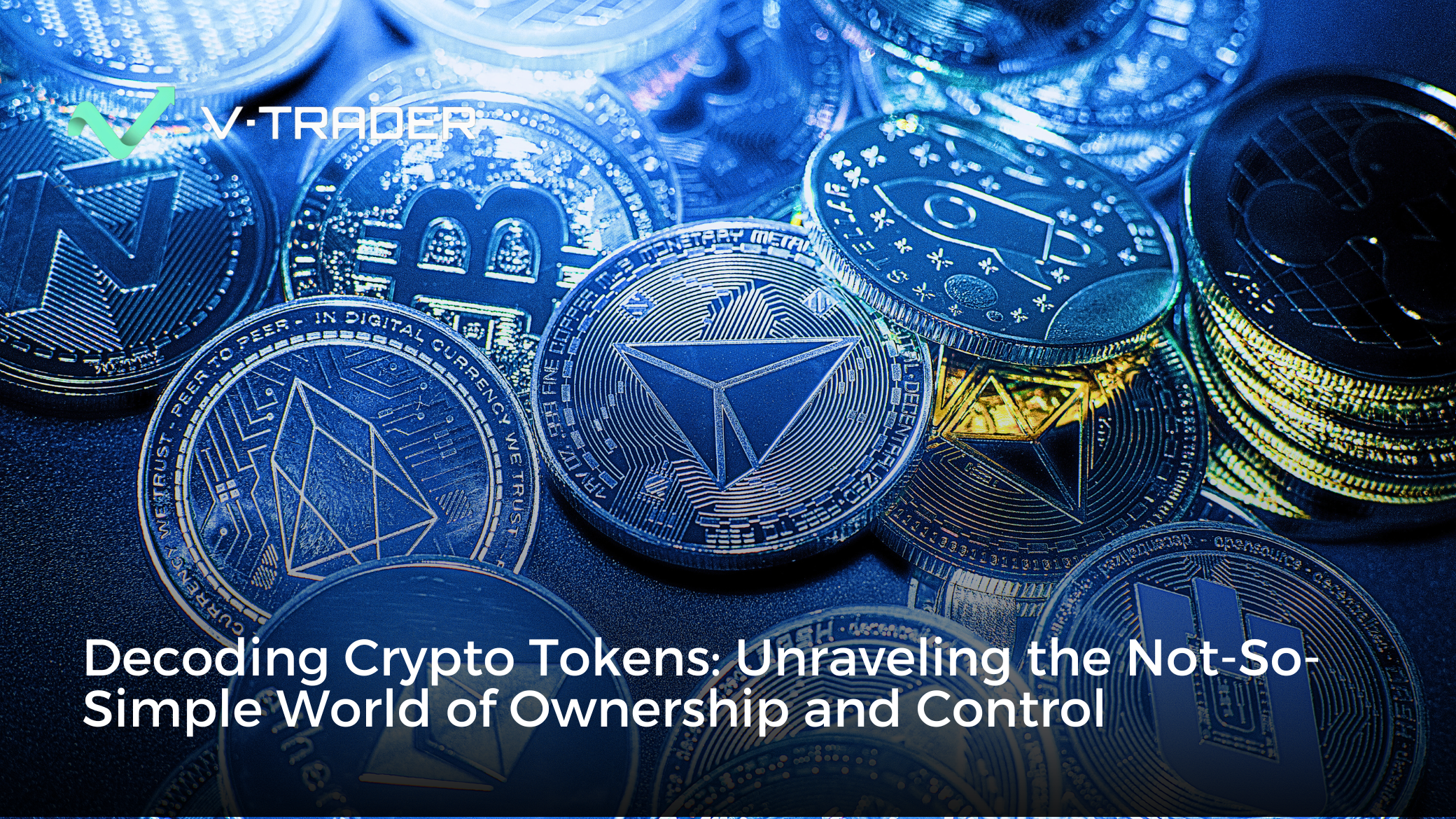Introduction
In the ever-evolving landscape of cryptocurrencies, the concept of ownership has become a pivotal point of discussion. With the recent acknowledgement that crypto tokens are not intrinsically securities, the crypto community eagerly awaits a clear definition of what they truly represent. However, this definition may still be years away due to impending legislation.
In this article, we will delve into the complexities of crypto tokens, seeking to comprehend their essence and their implications for ownership.
Unraveling the Definition
The definition of a crypto token is a subject that elicits divergent viewpoints, with both simplicity and complexity vying for attention. For the initiated, the term may seem obvious, much like water to a fish, but for the uninitiated, grasping its essence can be a challenge.
Try out our P2P Platform — Download The vTrader App on Your iPhone
Some definitions attempt to encapsulate the essence of a crypto token. In a landmark 2020 ruling, a judge from the Southern District of New York in SEC vs. Telegram defined cryptocurrencies as “a lawful means of storing or transferring value.” However, this definition proves too vague, as it can be applied to many other assets that have nothing to do with the crypto space.
A more thorough explanation was offered by the UK’s Law Commission, defining tokens as “a data structure instantiated within a crypto-token system, such that the particular, individuated instance of a data structure takes on a specific, individual function by virtue of the operation of the socio-technical system in which it exists.” While technically precise, it leaves most readers scratching their heads, finding little practical application in its complexities.
Thankfully, the Bank of International Settlements provides a concise and understandable definition, referring to tokens as “digital entries [that have] the ability to integrate the records of underlying assets with set rules.” This definition allows for better comprehension, earning an 8 out of 10 on the functionality scale.
An even more straightforward definition, earning a perfect score of 10, is presented by Simon Taylor of Fintech Brain Food, who defines tokens as “programmable assets.” While this definition accurately captures the essence of crypto tokens, it inadvertently introduces another dimension to the debate: asset ownership.
The Conundrum of Ownership
With the term “asset” comes the implication of “investment” and, consequently, “investors,” which raises questions about government involvement. Defining the extent of ownership in the crypto world is far from straightforward, given the nature of the assets in question.
Traditional finance offers a clear path to ownership, governed by legal systems. In contrast, crypto tokens bestow ownership through private keys, adding a layer of complexity and nuance to the concept. Fintech Brain Food concisely captures this idea by stating that “with a natively digital token, access and ownership are the same thing”.
However, this interpretation raises further questions about the ownership of protocols themselves. The UK Law Commission contends that social consensus plays a vital role in determining ownership. If a collective agreement exists that tokens represent a claim on earnings, then they do indeed convey ownership. In this way, crypto tokens offer a “factual concept of control,” resembling equities.
Diverse Applications of Tokens
Despite the similarities to stocks, not all tokens serve as investment assets. Utility or governance tokens exemplify this diversity, serving distinct purposes beyond being financial instruments. As the crypto world constantly evolves, new token models may emerge, challenging our understanding of their implications.
The Call for an All-New Legal Definition
Given the multifaceted and fluid nature of crypto tokens, the UK Law Commission urges the government to create a novel legal category: “data objects.” This umbrella term would embrace the intricacies of crypto tokens and provide room for exploration, offering an unprecedented level of clarity in a constantly shifting landscape.
Conclusion
As we grapple with the complex concept of ownership in the realm of crypto tokens, it becomes evident that a thorough understanding is far from imminent. The community must navigate intricate definitions and multifaceted applications, seeking a legal framework that accommodates this ever-evolving ecosystem. The proposed classification of crypto tokens as “data objects” signifies a step towards recognizing the complexity and uniqueness of these digital assets.
Try out our P2P Platform — Download The vTrader App on Your Android
As Judge Torres has granted us time to ponder, we can only hope that we may emerge from this transitional period with a more refined and comprehensive comprehension of crypto tokens and their implications for ownership.
Stay informed with the latest crypto news and insights delivered directly to your email inbox by subscribing to our free newsletter at the right bottom of this page.
Looking for even more timely updates? Join us on Telegram for the fastest access to our news.
Written by Agbo Obinnaya
Check out our Ethereum Gas Fee App on App Store.
Check out our Ethereum Gas Fee App on Play Store.
Join the conversation on Twitter: Click here.
For media inquiries or interviews, please get in touch with us here.
About vTrader News:
vTrader News is a renowned international platform with comprehensive cryptocurrency, business, finance, technology, and entrepreneurship coverage.
With a global readership, vTrader News provides unparalleled insights into the latest developments shaping the world of cryptocurrency, finance, and other emerging industries.
Learn More About vTrader: Click here.


